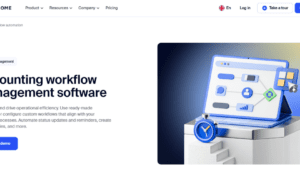We live in a world where almost everything can be accomplished online. Take an example booking a train ticket, ordering a pizza, and paying bills. As everything gets simplified, those who have to venture into the online world have to make crucial decisions. And that is, choosing an ideal eCommerce platform.
Web developers at RVS Media stress that choosing the right eCommerce platform can ensure a seamless experience for the website users, help the back-end team manage the website smoothly, and run marketing campaigns easily. If you’re planning to start an online business and aren’t only focused on short-term goals you must select a platform that will lead to the long-term growth of your business among the many other goals.
In this piece of writing, we intend to help you discover the different eCommerce platforms available and how you can choose the right option, whether relying on an eCommerce development company or not.
The FACTS
E-commerce is the buying and selling of goods, and services or making transactions on the internet. E-commerce has evolved greatly in the past years and according to statistics, global eCommerce revenue is predicted to reach $ 5.4 trillion by the end of 2022.
- An eCommerce platform is a software application that allows users to craft and manage customized shop fronts what we also know as ‘websites’.
- Depending on the goals, a user can build a website from scratch or use plugins to facilitate customization.
- Chatbots, voice-based search, visual commerce, and omnichannel solutions are among the latest trends of eCommerce worldwide.
- Online stores have become a necessary extension of brick-and-mortar stores worldwide regardless of the size of a business.
- E-commerce platforms like Big Commerce, Shopify, and Magento are among the top choice for setting up a store online.
The Different Categories of E-commerce Solutions You Must Know
There are generally three eCommerce platform categories that merchants need to know before making a final decision and they include;
Open-Source (On-Premise or Cloud): There are many open-source eCommerce platforms and the best thing about them is that you can modify all aspects of the code or store. They include WooCommerce, OpenCart, PrestaShop, Drupal, and Zen Cart among others. Choosing an open-source eCommerce platform comes with a range of responsibilities such as hosting, PCI compliance, security, etc.
SaaS/Open SaaS (Cloud Hosting): With a SaaS option, you are renting the platform and this is one of the reasons why SaaS is a better option than an open-source solution. SaaS solutions are cheaper and transfer the responsibilities of hosting, PCI compliance, product updates, and security to a SaaS provider. An open SaaS option is that allows developers to customize a store using APIs.
Headless Commerce (Cloud Hosting): It is a version of CaaS eCommerce in which the shopping cart is separated from the CMS. Here solutions like Adobe, Experience Manager, or CMS Content Management Systems like Drupal and WordPress are the answer.
The Different eCommerce Platforms
There are several types of eCommerce platforms, each with its advantages and disadvantages and they include;
-
Magento
Magento is a popular choice when it comes to eCommerce and offers solutions for all sizes of businesses. It is exclusively an eCommerce solution and allows users to manage multiple stores through a single administrative panel. It is commonly preferred for its scalability, and SEO features, however, expensive. Contact RVS Media, an eCommerce development company if you wish to learn more about this eCommerce platform before investing in it.
-
BigCommerce
As a cloud eCommerce platform, BigCommerce happens to be an excellent option for small businesses and start-ups. It comes with built-in features and SEO control capabilities. It combines enterprise functionality, an app ecosystem, and open architecture.
-
WooCommerce
This open-source eCommerce platform offers a cart solution. It is preferred by those expanding into eCommerce since it’s highly scalable and facilitates a quick setup. Users can take advantage of either the free or paid themes. It is necessary to seek a professional eCommerce development service since WooCommerce requires a lot of resources.
-
Shopify/ Shopify Plus
Those who want to start selling online instantly can benefit from Shopify. It comes with in-built payment services such as PayPal, and Amazon, among others. It is also easy to use and with it, you can have a fully sophisticated website. Shopify Plus (Cloud-based) is an enterprise solution for those who run high-volume online stores.
-
Squarespace (SaaS)
This website builder has grown in popularity over the last few years, thanks to its marketing efforts. It comes with an easy-to-use backend design and offers many templates for use. Above all, it offers a lightweight cart to sell products.
Here is What to Consider When Choosing an E-commerce Platform
There are several things to consider before you choose a platform and always remember that migrating a site might be an awful experience for you and your customers. Therefore, assess the following factors before you choose an eCommerce development service from a provider.
The type of business: Many businesses start small and if you wish to grow, ensure to choose a solution that facilitates growth and scalability.
Target Audience: For a site owner who targets different users, a solution must allow integrations to meet user needs and find them anywhere. Using high-end customer intelligence platform for consumer brands will also help you understand your customers better, and enhance the overall user a xperience. What’s more, it will enable you to keep up with the latest trends and preferences of your target audience.
Cost: There are many things you will have to pay for when seeking a development service and after. These include web design, security, maintenance, hosting, etc. Assess your budget and needs to ensure that a solution is within your means.
Conclusion
We have now come to the end of our blog and if you wish to open an online store, we hope that the above insights guide you. If you need to know more about any website builder or require website development services, feel free to get in touch with RVS Media, an eCommerce website development company in London.



































